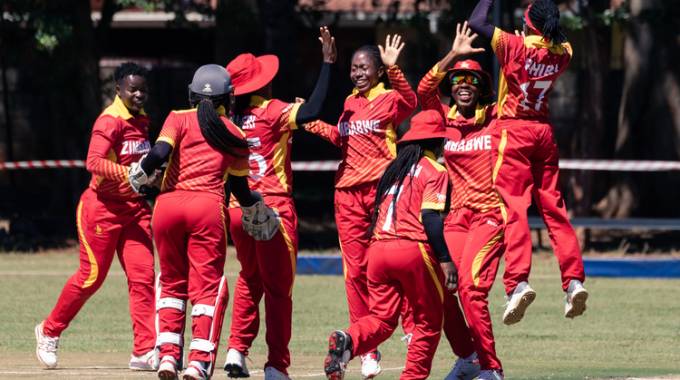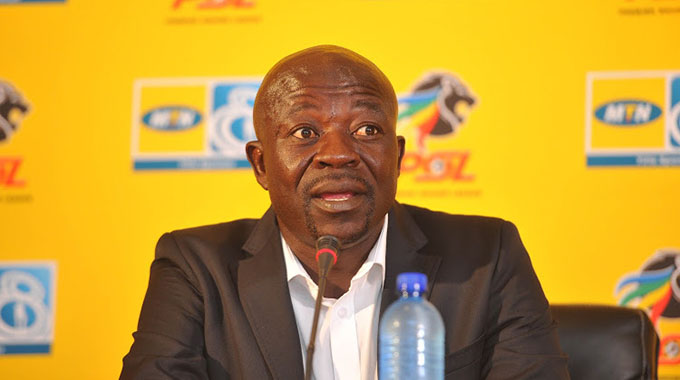Cricket lead codes set for consideration

Sports Reporter
CRICKET, the country’s second biggest sporting discipline, has been cleared for consideration to resume its activities, pending an application being lodged to Youth, Sport, Arts and Recreation Minister, Kirsty Coventry, through the Sports Commission.
Sporting activities in this country have been on hold as part of measures to halt the spread of the coronavirus whose outbreak has devastated sport around the world.
However, a number of the domestic sporting disciplines, led by cricket, are now considered to be low-risk sport codes which can, upon getting clearance from authorities, resume their activities.
“The Ministry of Youth, Sport, Arts and Recreation do hereby, in terms of Section 4 (1) and (2) of the Public Health (COVID-19 Prevention, Containment and Treatment), (National Lockdown), (Amendment) Order 2020 (No 9) gives notice of the classification of low-risk sport codes as:
- Archery
- Swimming
- Athletics
- Rowing
- Cycling
- Equestrian
- Horse Racing
- Fencing
- Golf
- Polo
- Polo cross
- Motor Sport/BMX
- Shooting
- Tennis
- Darts
- Goal Ball (Visually Impaired)
- Cricket
- Table Tennis
- Lawn Bowls
- Triathlon
“The above-mentioned sport codes are, therefore, advised to apply, in terms of Section 3 of the SI, to the Minister, through the Sports and Recreation Commission, for consideration to resume sporting activities.
“The list will be updated upon further clarification.’’
Last week, Coventry revealed they had made amendments on the classification of sport codes and an announcement was set to be made.
She said there has been confusion regarding the classification of the sport codes.
However, the Ministry, together with the Sports and Recreation Commission and health personnel, had gone through the different sport for classification, guided by World Health Organisation.
“There has been a bit of confusion, in terms of sport and low-risk sport and categories, and national associations have had a lot of questions and I think that was due to the SI (Statutory Instrument) that came out at the beginning of the week,’’ said Coventry.
“We have since refined . . . I have made some amendments and I will be talking on some of those points.
“The sport codes will be notified in the next few days which classification they are in.
“So, that means whether they are low-risk, medium risk, high risk, the Ministry along with SRC, along with doctors have gone through the different sport codes.
“And, we have been guided by the WHO guidelines in terms of which sport falls into the different categories.
“Once the national associations have received those categories, they will then come to the SRC with their plans on moving and then final approval will be given to the ministry.
“Our first and main priority is in safeguarding the people of Zimbabwe, and that is our athletes included, and the best way to do this is to be able to classify sports in low-risk, medium-risk and high-risk.
“Obviously, low-risk meaning less contact or no contact because that is how there is less chance of spreading Covid-19,” said Coventry.
National associations will have to apply to the Ministry to carry out their activities.
“The first main change is the definition of low-risk, previously we mentioned specific sport codes, we have taken out the specific sport codes as per the WHO guidelines,’’ said Coventry.
“Low-risk means non-contact sports and low-risk of transmission, so we will follow those guidelines and now that’s what the SI will speak to.
“Secondly, all sport codes need to apply through the SRC to the Ministry or the Minister if they want to train, compete or exercise provided that they meet and comply with all national and WHO safeguarding guidelines.
“If a sport association is found non-compliant they will be asked to immediately cease all activities and they could face criminal sanction.
“The third is all sports facilities and responsible authorities or venues have to keep and maintain a logbook of all persons entering and exiting them and they must keep these logbooks for a minimum of one month,” said Coventry.
She said there won’t be any competitions or spectators unless authorised and those found in breach will be shut down and could face criminal sanctions.
And, further from the prohibition or the sale of alcohol at the events, no sale of food to be eaten at the venue, and facilities, will be allowed except takeaways.
Coventry said national associations had to send in their plans, about how they would like to re-open, to the Sports and Recreation Commission.
They will be then vetted and the plans will be sent to the Ministry for final approval with the WHO and national guidelines being taken into full consideration.











Comments